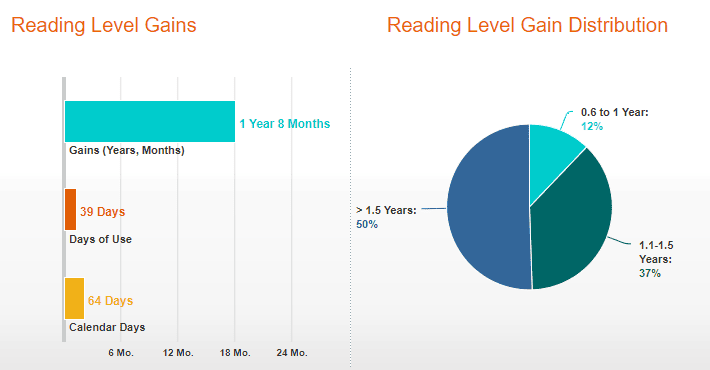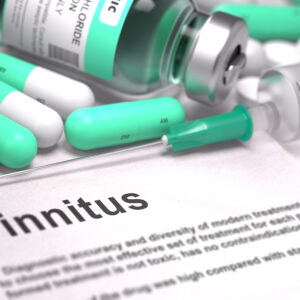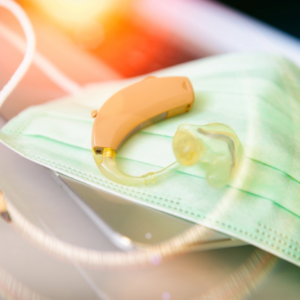Auditory Processing Testing
At Ability Hearing and Balance, we believe every Tasmanian child and adult deserves the ability to thrive academically and emotionally.
We specialise in Auditory Processing Testing for children and adults, offering vital insights into learning abilities. These tests can help provide parents with answers and solutions to some of their biggest challenges.
Auditory processing issues can disrupt how the brain interprets auditory information, affecting speech understanding, language learning, and memory. Symptoms vary, from difficulty following conversations to struggles in school. Early detection is important to be able to thrive and build a fulfilling life long term for both children and adults.
Our specialised auditory processing testing and training program can help parents wanting to help their children be more comfortable and confident at school and learn more easily. Parents can find solace knowing that they have control over their child’s care. We recognise that symptoms such as being easily distracted, occasional disruptive behaviour in class, struggles with reading and literacy, and difficulties with language learning might raise concerns, even if a formal diagnosis hasn’t been made yet. Teachers and speech pathologists may observe these signs, sometimes mistaking them for other issues like hearing loss. For adults, testing and support can also help with social challenges in adults that haven’t been properly identified and treated to create more ease in day-to-day life.
Our comprehensive assessment identifies challenges like Auditory Processing Disorder (APD). If your child struggles in school, easily gets distracted, or faces concentration issues, our test can be the key to unlocking their potential. Or perhaps you face challenges in understanding conversations, following complex speech, experiencing fatigue in noisy settings, or lack confidence in social and professional interactions.
Our tailored training program that follows for those diagnosed with APD can boost confidence, improve focus, enhance communication, and elevate academic performance. Don’t let auditory challenges hinder your child’s or your future ambitions or success.
You don’t need a referral to book a test. It’s a simple phone call away. Contact us to book an appointment today for Auditory Processing Testing.

Our testing process involves a comprehensive evaluation, designed to be accessible and informative, requiring no referral. We aim to provide clarity and support, offering a thorough examination covering various auditory skills, including auditory memory, spatial processing, and the brain’s ability to differentiate sounds. These tests, combined with a detailed history, help us build a comprehensive picture of what might be going on.
Depending on the results, we recommend tailored interventions, which may include auditory training or low-amplification hearing aids with a microphone. Our Auditory Processing Testing service is available at all of our clinic locations across Tasmania, including Kingston, Rosny, Glenorchy, North Hobart, Launceston, and Burnie. It is set up to specifically target issues that Central Auditory Processing Disorder presents. You don’t need a diagnosis of the disorder to go through the testing process. If you believe that the list of challenges below sounds like what you or your child experience, it’s a great avenue to explore. If the testing reveals that you do not have auditory processing difficulties, you can rule out APD as a potential cause of your symptoms.
At Ability Hearing and Balance, we offer comprehensive Auditory Processing Testing for children and adults. Our assessment pinpoints auditory processing abilities and identifies potential challenges. Our team of audiologists provides personalised care and support throughout the testing process.
To get started and find out more about the process or to make a booking, please contact us. Our results have been extremely positive for those that progress to the training program and it’s possible that improved learning and wellbeing for you or your child could start with this test.
Contact us to book.

If your testing reveals that therapy and training could provide significant benefits, we will recommend a tailored therapy and auditory training program.
Once enrolled, our program involves a commitment of 30 minutes each night, five nights a week, for three months. Through engaging games and activities, we aim to make the process enjoyable for your child while effectively rewiring neural pathways and improving auditory processing skills.
Our program is suitable for children aged five and older, and we also cater to adults experiencing similar challenges. There is a minimum 3-month commitment to the training program for it to be effective. The cost of the program starts at $110/ week, providing an affordable option for families seeking support.
We are committed to providing accessible and comprehensive care to individuals of all ages, ensuring that everyone has the opportunity to address auditory processing challenges and unlock their full potential. Our training program has already helped others unlock more of their potential.
Our goal is not just to address symptoms but to empower you or your child with increased confidence and improved focus. We’ve seen remarkable progress in the students and clients we’ve worked with.
Our therapy involves engaging, game-based exercises tailored to individual needs. With just 30 minutes of fun online gaming, five nights a week – the training program is easy to support and implement at home. More importantly, past clients have reported tangible benefits as listed below:
- Increased Confidence: Clients feel more empowered academically and socially.
- Improved Focus: Better concentration and attention, especially in noisy environments.
- Enhanced Communication: Clearer speech and better understanding.
- Reduced Distraction: Improved ability to filter out background noise.
- Academic Progress: Significant improvements in reading and writing skills.

Read how our Auditory Processing testing and training programs have helped other Tasmanian families and their children.
“The Auditory program has been wonderful for my son, it has really helped him to identify and understand the sounds that he is hearing. The activities within the program are designed to be fun and engaging and at their own pace so that it feels more like a game rather than homework, which has been excellent for my son who hates the idea of extra work after school! We have made great progress since starting the program and my son has really enjoyed being able to beat his own high scores and complete levels!”
– K.A., Tinderbox
“Very happy with the service. We got an appointment quickly, and Heidi made sure my daughter felt relaxed and comfortable during the very long test session. Follow-up was at the time frames arranged and now we have a clear plan for moving forward. Highly recommended.”
– J.G., Old Beach
Our Auditory Processing Training program may be the “magic wand” you’ve been looking for to help your child catch up with their classmates or feel more calm and focused in the classroom. Those who complete our training program have noted significant improvements as a result including increased confidence in the classroom and that they find it easier to focus in the classroom environment. The training program is game-based so engaging and fun for kids and not a drag. Just set them up and away you go. Their results are fed back to us through the software giving us what we need to tweak the program remotely to continuously challenge the child in a fun and engaging manner that is results-driven and measurable.
Here is a screenshot of what our Auditory Processing training program has achieved for our Tasmanian students so far:

- On average, our students gained the equivalent of 1.8 years of grade reading abilities through an average of 39 days of use on our Auditory Processing training program.
- Over 50% of the Tasmanian children who attended our training program improved by 1.5 grades in reading gain in the first 3 months of the program. 87% of our students improved their reading by at least one year of grade equivalent.
- The program is an online home-based program that children access 5 days per week.
- Parents and teachers consistently report noticeable improvements of the children’s confidence and focus in the classroom as a result of the training program.
- From $110 (inclusive of GST) per week

At Ability Hearing and Balance, we understand the journey of discovering and addressing auditory processing difficulties in children can be overwhelming. Whether your child has already received a diagnosis, or you suspect they may be experiencing challenges, we’re here to offer support and guidance every step of the way. Auditory Processing Disorder (APD) can often go undiagnosed, leading to unnecessary frustration for both children and their parents. The symptoms of APD can vary in severity and may overlap with other conditions, making diagnosis challenging. However, early identification and intervention through Auditory Processing Testing and specialised therapy can significantly improve outcomes and help individuals overcome these challenges. If your child is experiencing multiple of the below symptoms, a test is a great avenue to explore whether therapy in this area could assist them.

Auditory Processing Disorder in Children
- Difficulty following verbal instructions or multi-step directions.
- Struggles with reading, spelling, and writing, despite adequate intelligence.
- Poor academic performance, especially in language-based subjects.
- Limited attention span and easily distracted, particularly in noisy environments.
- Trouble with phonemic awareness, leading to difficulties in speech and language development.
- Delayed language milestones, such as late onset of speaking or limited vocabulary.
- Difficulty distinguishing speech sounds or understanding speech in noisy environments.
- Social struggles due to misinterpretation of social cues or difficulty in understanding conversations with peers.
Auditory Processing Disorder (APD) can manifest in various ways and present challenges in both adults. Here are some additional symptoms and challenges associated with APD.
Consulting with a qualified audiologist for evaluation and support is advised if you relate to these closely and these symptoms are negatively affecting your daily life.

Auditory Processing Disorder in Adults
- Challenges in understanding conversations, especially in noisy or crowded settings.
- Difficulty remembering verbal instructions or conversations.
- Trouble with following complex speech or lectures, leading to decreased academic or professional performance.
- Struggles with oral communication, such as maintaining conversations or expressing thoughts verbally.
- Misinterpretation of tone or intention in spoken language, leading to social difficulties.
- Increased fatigue or stress in situations requiring sustained auditory attention, such as meetings or lectures.
- Problems with auditory memory, affecting the retention and recall of auditory information.
- Reduced confidence in social and professional interactions due to communication difficulties.

Our Auditory Processing Testing Protocol
Ability Hearing and Balance is a Tasmanian local clinic built on trust and reputation. As parents of school-aged children ourselves, we understand that an APD diagnosis is only the first step in support. For us, it is more important to focus on what can be done to help the kids we see who are struggling at school with reading and writing. The focus of our APD clinic is long-term support for your child’s learning. We work alongside child & educational psychologists, speech pathologists, occupational therapists, teachers, and tutors to devise a treatment plan tailored to your child’s needs and learning preferences.



